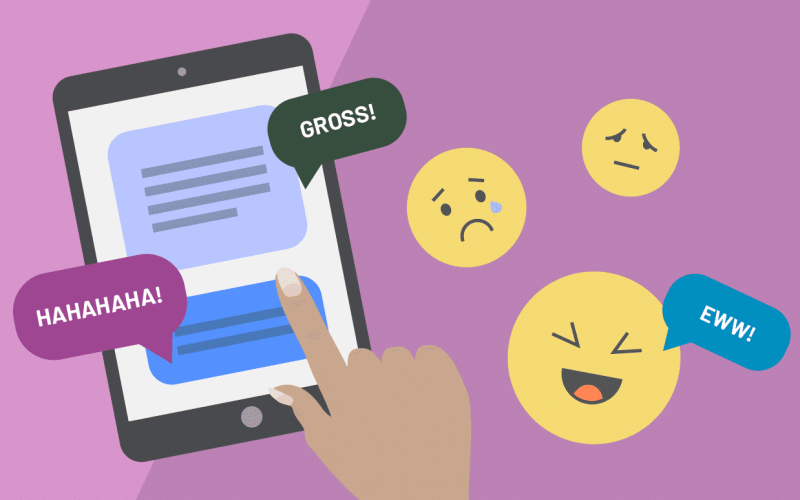Social media has become a powerful tool in the last decade. It is the first thing many people look through when they wake in the morning and the last thing they do when they sleep.
It connects people from various walks of life across different geographical locations and time zones.
Social media drives innovation and business, and it amplifies the voices of both the marginalized and the privileged. Social media has become a force of change for everything from business to health, technology, sports, finance, and the arts.
However, with its many benefits to humanity, social media has its negatives. One of the most concerning and debilitating is cyberbullying.
Cyberbullying is described as bullying that occurs over digital devices like cell phones, tablets, and computers. Cyberbullying can also take place via SMS, texts, forums, and gaming platforms.
It often involves sending, posting, or sharing harmful, cruel, negative, or false content about someone. Personal or private information about someone else can be used to hurt them or cause humiliation or embarrassment. Some cyberbullying, such as sharing private photos and videos, are unlawful and deemed as criminal behavior.
Cyberbullying causes significant emotional, mental, and physical distress to its victims. People, especially children who have been cyberbullied, are susceptible to anxiety, depression, fear, and low self-esteem. They may also experience mental health issues and struggle with work or school.
Cyberbullying can victimize anyone at any time, but specific demographics are more susceptible to it than others. About 37% of teenagers between the ages 12 and 17 have been bullied online.
Girls are more likely than boys to be both victims and perpetrators of abusive online behavior. People are more likely to experience online harassment on social media apps like Twitter and Instagram than others.
Furthermore, minority groups such as women and the LGBT+ community experience higher rates of abuse and harassment online than others.
Suicidal behaviors and self-harm exist at a higher rate in young people who experience cyberbullying. Only very few teenagers would report cyberbullying to a parent or trusted adult.
Cyberbullying is often a repeated behavior intended to cause harm. It is perpetuated through cyberstalking, harassment, denigrating victims, impersonation, and social exclusion.
It can be as simple as repeatedly sending emails or texts harassing someone who does not want to contact the sender.
It can also include sexual remarks, hate speech, false accusations, piling on the victim to make them the subject of ridicule in online forums, or hacking into sites about a person and posting false information on their behalf.
Doxing, which involves disclosing the personal data of victims, is a common method of cyberbullying. Cyberbullies are often anonymous and may impersonate someone by creating fake accounts or sites posing as their target to publish content in their name that ridicules, defames, or discredits them.
Effects of Cyberbullying
Isolation
Cyberbullying may sometimes cause the victim to feel excluded or ostracized, resulting in feelings of loneliness or isolation. This is particularly painful when the victim does not have anyone to talk to.
While it is recommended that people shut off their devices when being cyberbullied, this might not be the case for everyone, especially teenagers and people who work online. Shutting down their computer means cutting off communication in their world.
Once that option for communication is removed, the victim can feel secluded.
Depression and Anxiety
Studies have shown that increasing levels of cyberbullying leads to higher levels of depression. Victims often succumb to depression, anxiety, and other stress-related conditions that affect their feelings of happiness and overall contentment. Depression also increases worry and isolates victims from their friends.
Humiliation
The internet never forgets, and this is especially true about bullying in cyberspace. Online harassment and bullying feel permanent, and it leaves a record that can easily be traced to its victim, making them feel embarrassed and exposed.
Screenshots, cruel texts, and nasty posts can be shared with many people within minutes. A victim may have intense feelings of shame and humiliation due to the sheer volume of people that know about the bullying.
Low Self-Esteem
The effect of cyberbullying on self-esteem cannot be overemphasized. Cyberbullying typically attacks victims in areas where they feel the most vulnerable. This results in feelings of intense dissatisfaction and self-doubt, causing the victim to doubt their value and worth.
Because humans have an intense need to belong or be accepted by their peers, cyberbullying may cause reduced well-being and low self-esteem.
Self-Harm
Victims of cyberbullying may sometimes respond to their feelings by harming themselves. Some may engage in self-harm, like burning or cutting themselves.
Others may binge eat or starve themselves, hoping that if they change how they look, then the bullying will stop. The victims may also try to change their appearance or attitude to avoid more cyberbullying.
What makes this particularly insidious is that the victims may blame themselves for being bullied and punish themselves in response.
Sleep Disorders
Cyberbullying may cause victims to experience distorted sleeping patterns. They may suffer from sleeping issues such as insomnia, night terrors, or sleeping more than usual.
Eating Disorders
Children who experience cyberbullying are more likely to change their eating habits like binge eating or skipping meals. Because they feel their lives are beyond control, they look to their eating habits as something they can control. This may result in a full-blown eating disorder, especially if the bullying results from a distorted body image.
Suicide
The internet is awash with stories of people, especially teenagers who have committed suicide after being cyberbullied. Teenagers are constantly tormented by their mates through texts and social media, which leads to feelings of hopelessness.
They may begin to feel like the only way to escape their tormentors is through suicide.
Sources;
- Cyberbullying: What it is and how to stop it – UNICEF
- What is Cyberbullying – StopBullying
- What are the effects of Cyberbullying – VeryWellFamily
- Cyberbullying – Wik i pedia








